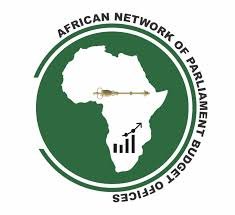Lawmakers from African countries yesterday converged in Abuja to collaborate on blocking yearly revenue leakages of about $587billion as revealed by the African Development Bank (AfDB) in May this year.
The move to prevent the annual loss of $587billion which is equivalent to N887trillion through capital flight in Africa, topped discussions at the opening session of 8th Conference of African Network of Parliamentary Budget Offices held at the Abuja Continental Hotel.
In his keynote on the occasion, the Speaker of the House of Representatives, Hon Tajudeen Abbas said there is no better time for the gathering to focus on fiscal and governance challenges facing various countries in Africa through effective and efficient legislation than now.
According to him, one of the critical challenges is revenue leakage through corruption, illicit financial flows, and inefficiency which must be tackled through better ways of budget scrutiny.
“According to the African Development Bank, Africa loses over $587billion annually to capital flight – money that flees the continent through corruption, illicit trade, mispricing, and profit shifting by multinational corporations.
“Corruption alone is estimated to drain about $148 billion from Africa annually, and other illicit financial flows (such as trade malpractices, smuggling, among others) siphon away additional tens of billions.
“This is money that should be used to build roads in Lagos, equip hospitals in Nairobi, or improve schools in Accra, but instead it vanishes,” Abbas said.
The Speaker said that Nigeria presents a cautionary example of both the challenge and urgency of oversight, saying: “In our public procurement processes, which make up a significant part of government spending, Nigeria loses an estimated $18 billion each year to financial crimes, roughly 3.8per cent of our GDP. These leaks could fund numerous social programmes many times over.”
“There is a need to stop such leakages so that budgets can lead to better outcomes for citizens.
“That is why we have been increasing oversight hearings, audit inquiries, and strengthening anti-corruption laws. Oversight is vital to ensure that limited resources are used for the public good.
“Institutional capacity constraints also pose a challenge. Many African parliaments have historically lacked independent analytical resources to effectively scrutinise budgets and expenditures.
“Without access to high-quality fiscal data and economic analysis, legislators may struggle to hold the executive to account on complex issues of macroeconomic policy, debt sustainability, or public investment efficiency.
“This gap is exactly what Parliamentary Budget Offices are meant to fill.”
![]()










